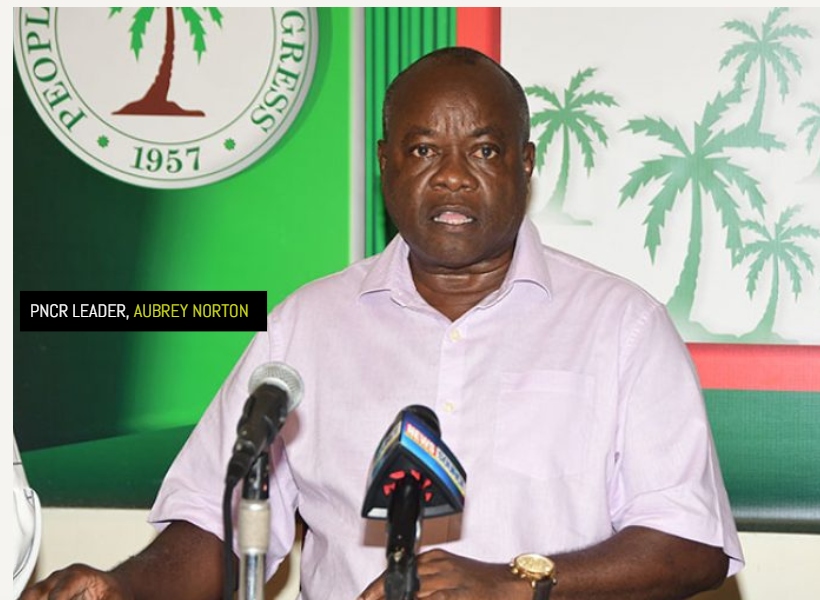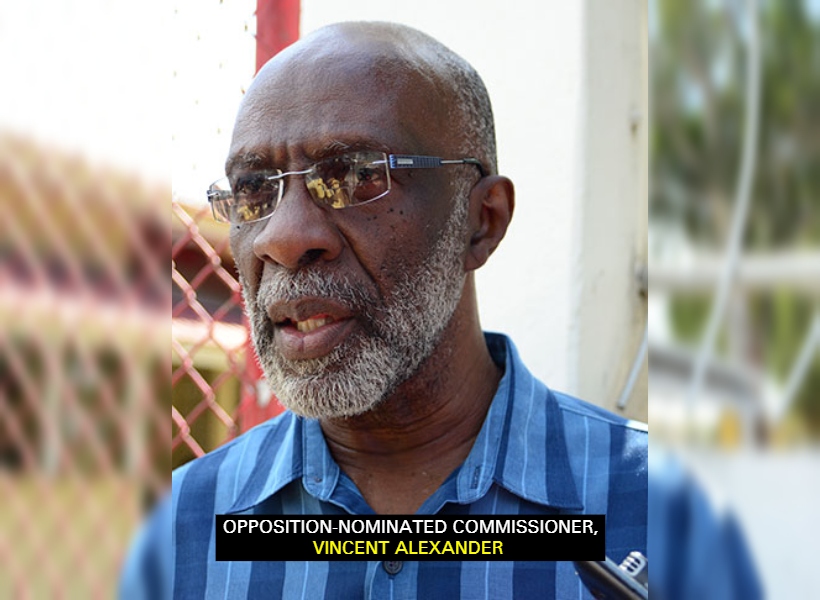Opposition-nominated Commissioner at the Guyana Elections Commission (GECOM), Vincent Alexander has expressed grave concerns over the apparent bloated nature of the Official List of Electors (OLE) for the 2025 General and Regional Elections.
In a missive to the press, the commissioner noted that GECOM has produced a list of some 706,439 voters. This figure, the commissioner noted, “will soon exceed” the resident population of Guyana, which he argued is approximated to be in the vicinity of 780,000.
It must be noted that the last census conducted by the Bureau of Statistics was done in 2012, which noted that the total population of Guyana at that time, stood at 746, 955 comprising a total of 371,805 males and 375,150 females.
Alexander, presumably with no reliance on general population data, premised his argument of a bloated OLE on statistics emanating from the country’s school system.
He argued, “The school age population is estimated to be over 200,000. Hence our resident voting population should be approximately 580,000, which means the voter list exceeds the resident voting population by no less than 126,439.”
Alexander quizzed how was this possible, as he postulated that the bloat could be a result of the presence of names of non-resident Guyanese on the voters list.
“Why is this of concern? This is of concern because the recount of the ballots cast in the 2020 elections, resulted in thousands of claims of the existence of listed persons, who were purportedly out of the country, for whom votes were cast; also, the results were sufficiently close for malpractices, averaging four per a polling station, to affect the outcome of the elections,” the GECOM Commissioner said.
Indeed, controversy erupted over the results of the last election held in March 2020, which led to the outcome of that process being delayed by five months. Similar concerns over a bloated list were raised during that electoral process, prompting the former GECOM Chairman, Justice (retired) James Patterson to order a fresh House-to-House registration exercise. But the Chairman’s post was challenged in court and his appointment was found to be unconstitutional. His successor, Justice (retired) Claudette Singh, aborted the process after a court ruling barred the removal of names from the list by actions not provided for in the constitution.
“…[T]he removal of the names of persons who are already on the list of registrants and who were not, or have not been, or are not registered in the current house to house registration exercise with a consequence of non-inclusion in the list of electors, would be unconstitutional, unless they are deceased or disqualified pursuant to Article 159(2) with the safeguards for removal of the names of persons pursuant to the National Registration Act, Chapter 19:08 to be strictly complied with.” the Chief Justice, Roxan George said.
But Alexander now contends that herein lies the connivance. He was keen to noted that no effort is being made to rectify this “proven and exploited flaw”.
“The Judge’s ruling is being used as the beginning and the end of any action that can be taken, meaning that no action can be, or is being taken. However, the Judge’s ruling does not address the fact that thousands of registered Guyanese die overseas every year, yet there is no mechanism to have their names removed from the voters list.
“There is no mitigation of the instances of absent persons being voted for, particularly since such persons are undoubtedly numbered among the thousands of registered overseas voters, who would have died,” Alexander underscored.
He added that there are those in GECOM and the political circles who are “complicit” in not rectifying the flawed system, while probably participating in, or condoning, its exploitation.
This, he added, is evident in their objection, and resistance, to the implementation of electronic fingerprint identification at the place of poll.
“Such a system would not have names taken off of the voters list, hence complying with the Judge`s ruling, while, at the same time, preventing absentee voters and the deceased overseas voters, in particular, from being impersonated as evidently happened in 2020, while probably going undetected in previous elections.”
Alexander said that his proposition on Tuesday, March 5, 2024, that GECOM addresses its mind to this obvious defect in its system, “fell on deaf ears, as GECOM merrily prepares for elections that are due, no later than 2025”.
He concluded, “Its seems that our very electoral machine is complicit in the facilitation of electoral malpractices”.











